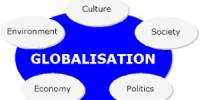Diplomatic capital refers to the trust, goodwill, and influence which a diplomat, or a state represented by its diplomats, has within international diplomacy. The body of foreign diplomats assembled at a nation’s capital. According to political scientist Rebecca Adler-Nissen, diplomatic capital is a kind of currency that can be traded in diplomatic negotiations and that is increased when positive ″social competences, reputation and personal authority” are portrayed. In cities where consuls and consul general are residents, they are collectively known as the consular corps.
Accumulation and loss
Diplomatic capital can be accumulated for example by economic cooperation and by contributions to the solution of international crises. The practice of feigning illness to avoid participation in a diplomatic event of one kind or another and at the same time to avoid giving formal offense. It is strengthened when in other countries the sentiment prevails that the interests of a state or the diplomats representing it are aligned with their own interests. “Diplomatic deafness” is a somewhat related concept whereby older diplomats allegedly turn this infirmity to advantage by not hearing what they prefer not to hear. Conversely, it can be squandered when a country engages in a confrontation, an armed conflict or a war if that is perceived as unjust or at odds with the interests of others.
Diplomatic capital is also linked to the extent of enforcement of human rights. Exemption of foreign diplomatic agents or representatives from the local jurisdiction. Diplomatic Note is a formal written means of communication among embassies. Dispatch is a written, as opposed to a telegraphic, message from an embassy to its home office or vice versa.
















